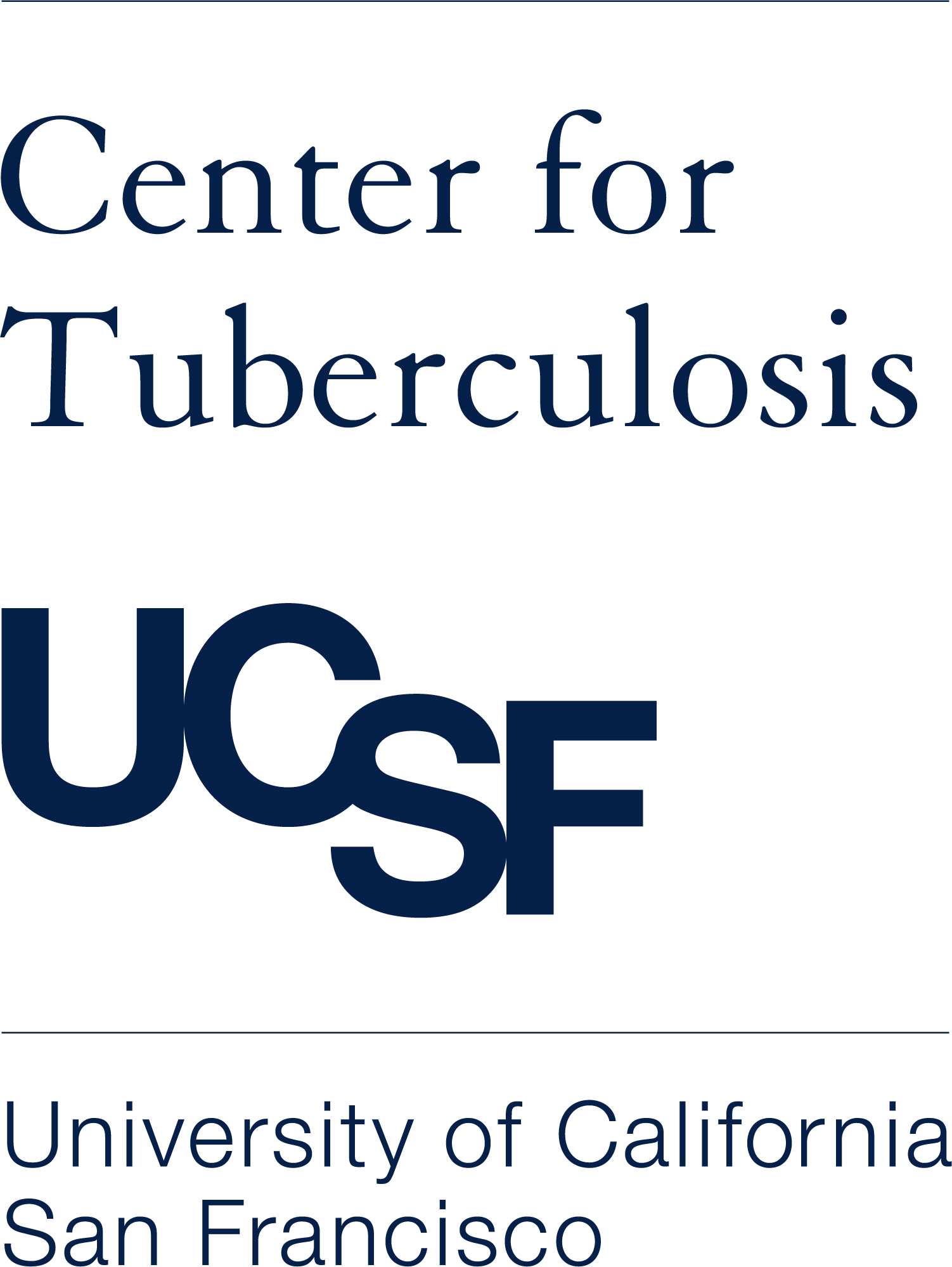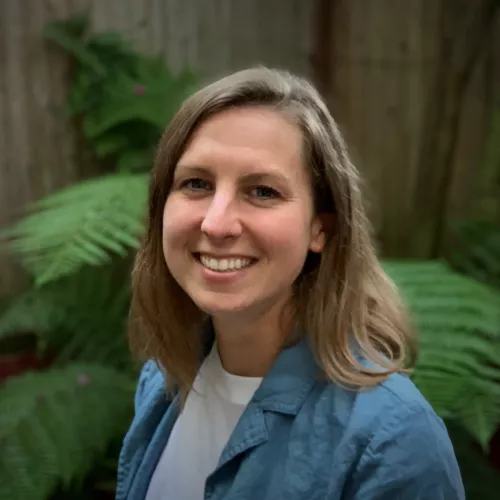Researcher Spotlight
Lab of Rada Savic, PhD
Tell us about yourself and what piqued your interest in TB research?
I recently finished my PhD in Rada Savic’s group. I did my dissertation in pediatric TB, and before I was in Pharmacy School here at UCSF. I have always been interested in global health and infectious diseases, and particularly interested in doing a PhD in clinical pharmacology and modeling, which led me to Rada’s group. Rada introduced me to childhood TB. At that time, I was unaware of the global burden of TB. I briefly learned about it in pharmacy school, and because the TB burden is low in the US, we didn’t spend much time on it. When I got started on my first project in Rada’s lab, it really opened my eyes to the importance of TB research, and I became particularly interested in optimizing treatment for children. I learned that children were historically neglected in TB research.
What recent project have you been working on that you’d like to share with us?
I worked on several projects throughout my PhD, the one that I’m continuing to work on, which has been longitudinal and really captures the opportunities for optimizing pediatric TB is the work I’ve done on rifapentine dosing, specifically for TB preventive treatments. This work now has the potential to be applied for TB treatment in children with the recent approval of the new rifapentine-based four-month regimen for TB treatment. On this project, I worked to understand the clinical pharmacology of rifapentine in children, based on a few clinical trials and used that knowledge to do two things. The first was to propose a pediatric-friendly formulation that will be developed so children can access this treatment, currently there’s no pediatric formulation on the market. Children who want to use this drug have to use the adult formulation, which comes with some limitations for pediatric use. We presented this work to a number of stakeholders, including WHO and the Global Accelerator Group for Pediatric Formulations (GAP-f) and with that work we got a pediatric formulation prioritized by the WHO, which now is being advertised to a global platform and hopefully there will be some drug companies who will want to manufacture it. The second piece of that work is using the pharmacology research that we conducted to design a new clinical trial assessing how this drug behaves in children when it’s dosed daily for one month. In 2019, a novel one-month preventive regimen, 1HP, demonstrated efficacy in adults, and now we are working on designing a trial that is in the final stages of development for testing that regimen in children, which will hopefully increase greater access of that medication for children (https://www.who.int/publications/i/item/9789240028678).
Tell us about your role in this study/project?
I worked closely with my advisor, Rada Savic, at the time and some of our collaborators in South Africa and Johns Hopkins University. My role was doing the data analysis and simulations to propose the formulation that was eventually presented to the World Health Organization. Additionally, I did the modeling and simulation to optimally design a new clinical trial, which the IMPAACT Network is funding.
Did anything surprise you while conducting your research?
Something that surprised me while conducting this research was just realizing how slow the process is for pediatric drug development. Rifapentine has been approved with an FDA label in children since 2014 and we still don't have a pediatric formulation on the market and one’s not even currently being developed. This process is very slow for children and this is not a unique scenario. This is really what I want to focus my future research on, hopefully closing these gaps and inequities that we see in pediatric drug development especially in the global health setting.
In what way do you anticipate this work will contribute to TB science advancement?
I think the results will be clear, we should see a pediatric formulation finally getting to market. And we will see shorter preventive regimens for children with 1HP, and likely shorter treatments for drug sensitive TB with the 4-month rifapentine regimen.
If applicable, what is your next move after this research is wrapped up? What do you have in the pipeline, or in mind for future research/projects?
Now that I’m in a postdoc, I've begun to think about what I want to focus on for my independent research career. One thing that's really struck me with TB research is the inequities in pediatric drug development and some of the pitfalls. I really want to focus on closing that gap, which means proposing well designed clinical trials that are based in clinical pharmacology and incorporate modeling, using modeling and simulation to propose optimal pediatric formulations for development early on. For example, the GAP-f platform is helping investigators leverage modeling and clinical pharmacology, not only to inform clinical trials for drug development in children, but also to simultaneously inform on the optimal formulations so that when we do have the evidence to support a labeled recommendation in children, we also have already gone through the process of developing that formulation so there is not a lag in pediatric access. Additionally, I want to leverage pooling data from several sources. Pediatric clinical trials typically run really small numbers of children, often less than 100. For several ethical and pragmatic reasons, Phase III clinical trials with thousands of children are not routinely done, especially in the setting of infectious diseases, and so I want to leverage methods that can use pooled data, programmatic data, electronic health record data, etc. where that's applicable to inform on the use of these drugs in children, whether they're being used for a labeled indication or an off-labeled indication. I plan to do that focusing on infectious diseases as those are the major causes of child mortality.
If you could direct funding sources to any element of TB research, where would you invest? Why?
I would invest in developing individual patient data warehouses that are Open Access to Investigators around the world, that would include programmatic data, for example countries that use one health care system, or electronic health record data, as well as clinical trial data from sites all over the world. The WHO recently announced a data platform for drug-resistant TB initiated from a large pool of data already collected by McGill University. Directing investments towards creating an Open Access source with large amounts of individual patient data will really enable major advancements in TB that wouldn't otherwise be possible or would be much more delayed with using the traditional stand alone clinical trials. I think that's especially true for children studies, as it is challenging to conduct clinical trials in children with large sample sizes. We don't have enough power to identify subpopulations of children that may be at risk of poor outcomes with small clinical trials that are done. We've seen this sort of Open Access highly collaborative platform with COVID-19 efforts, helping to make major advancements quickly with data coming from different sites throughout the world via electronic medical record systems. With Open Access, we could answer questions much more rapidly, track resistance or patterns in outcomes, and make huge advancements.
What lesson or advice would you give your younger self when you initially got into research/medicine?
In the 12 years I’ve been doing research, since my first year of undergrad, I feel very fortunate for what I've been able to accomplish and all the decisions that I made along the way that led me here. But moving forward. I want to remind myself not to be afraid to fail. The fear of failure makes you not take risks sometimes, and sometimes you discover amazing things when you take a risk or in the failures themselves. You learn a lot, not only about what you're researching, but about yourself when you fail. I hope that I can take that lesson with me moving forward, and not put so much pressure on myself to succeed every time I attempt something new.

